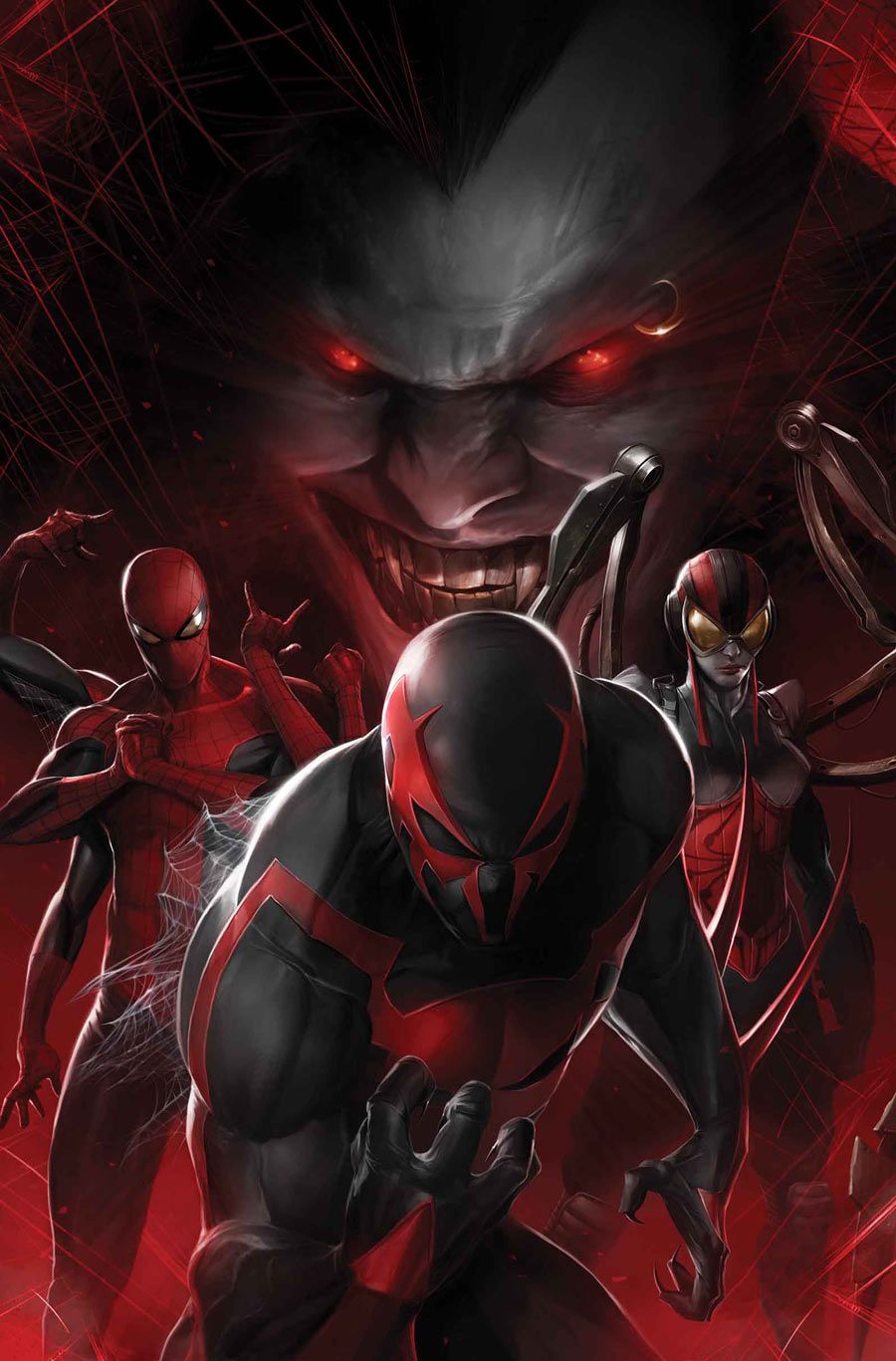As the events of "Spider-Verse" find all the Spiders split up, Peter David and Will Sliney follow Miguel O'Hara, six-armed Peter Parker and Lady Spider as they attempt to analyze Daemos' dead body in "Spider-Man 2099" #6. Easier said than done, of course, for Daemos finds new life through cloning technology and is hot on their interdimensional heels. David and Sliney lay the exposition out in a way that evenly balances the book's distinct qualities with the larger event at hand, paving the way for some solid action despite a formulaic plot and goofy lines.
For better or for worse, "Spider-Man 2099's" main man is embroiled in "Spider-Verse" like all of the other Spider-titles. In that David must introduce a whole slew of new readers to this world, he does a spectacular job of working in O'Hara's mythos without overwhelming the issue with exposition. The first few pages take care of the setting and the characters in one fell swoop, which opens the rest of the issue to high-stakes chases and action. As such, the pace starts off leisurely and builds to a fun, fast battle with a clever little conclusion that leans on Miguel's knowledge of his world. The issue, then, holds the series' distinct tone while welcoming new readers. As a tie-in, the issue performs its duties organically.
However, its tie-in status is a double-edged sword. For all that it's an entertaining read with steady storytelling, the issue is incredibly formulaic, particularly when read as part of the larger event. Like "Spider-Woman" #1 and "Scarlet Spiders" #1, "Spider-Man 2099" #6 features a team of three Spiders that jumps to another earth, loses the extraneous member, and confronts an Inheritor by the conclusion, only to get by on street smarts and wits alone. With so many other chapters of "Spider-Verse" available, this plotline is becoming tired. Likewise, Daemos' chatter occasionally comes across as forced -- certainly more forced than the Spiders' glib banter; for all the character's confidence, some of his lines are downright cringe-worthy rather than hilariously bad. He sounds like a villain right out of the Golden Age, which grinds against the more modern quips from the Spiders.
Will Sliney proves a nice companion to David's writing with clear, expressive figure work. A lot of the humor relies on Sliney to convey using body language, and he does so magnificently. The figures -- composed of bold outlines and magnified in close-perspective panels -- really drive the dialogue home with detailed facial work. Some of the best moments of the issue occur at the intersect between the speech and the art, using dramatic irony in a swift, efficient way. On the other hand, some of the action comes across as stiff and ungainly through strange perspectives that skew the depth of the panel. Further, Sliney overuses shading in some panels, at times obscuring the finer details (particularly with Daemos). Fortunately, colorist Antonio Fabela offsets this with bright colors that capture the futuristic nature of the setting.
David and Sliney's "Spider-Man 2099" #6 performs its duties as an event tie in and does it well -- no more, no less. Though unremarkable in the grand scheme of "Spider-Man 2099" as a series, the issue provides an enjoyable, tightly plotted chapter in the "Spider-Verse" series, albeit one we've seen before.

